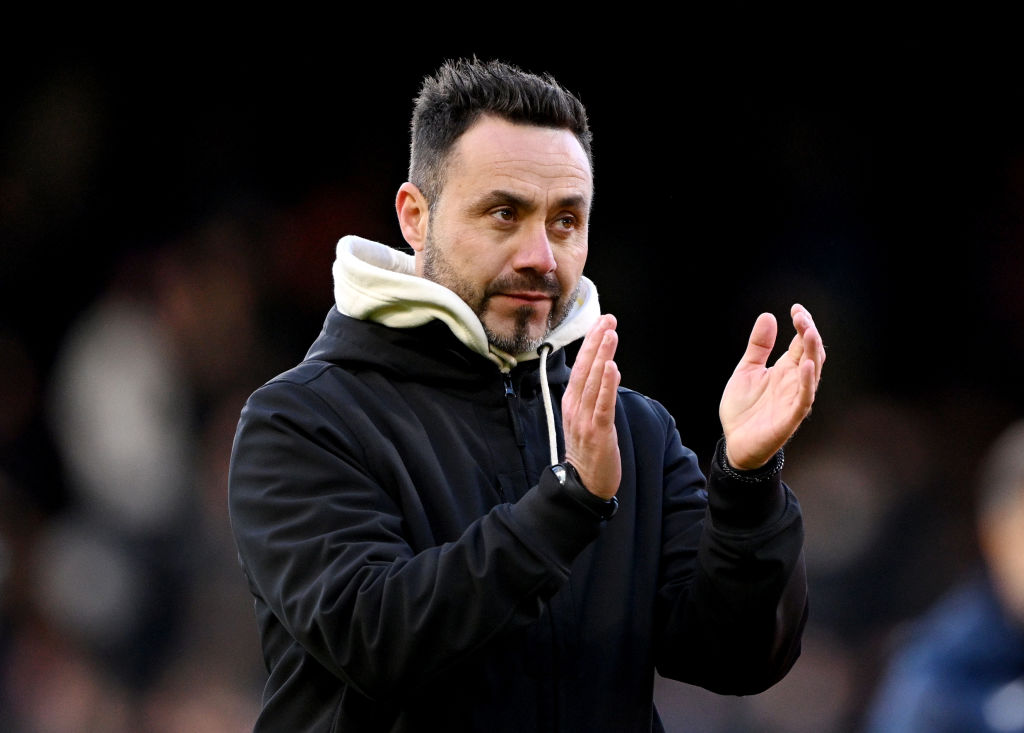
Brighton CEO Paul Barber says the club are ‘confident’ in their ability to keep hold of Roberto De Zerbi, but ‘understand’ that the manager may have ambitions to ‘take his skill base elsewhere’ down the line.
De Zerbi took over the reins from in September 2022, putting pen to paper on a four-year deal, and the has since established himself as one of England’s most sought-after managers with his work at the Amex Stadium.
Despite Brighton’s modest budget, De Zerbi steered his side to a sixth-placed finish in the Premier League last season to secure European football for the first time in the club’s history, playing an attractive style of football that has earned widespread praise.
This term, the Seagulls sit down in ninth after 27 games, but it comes after the club lost three of their top stars last , with Moises Caicedo, Alexis Mac Allister and Robert Sanchez departing for a total of around £158million.
De Zerbi’s success at Brighton has, unsurprisingly, caught the attention of some of England’s top teams and the 44-year-old has repeatedly been forced to bat away questions over his future in recent months.
Chelsea, Manchester United and Liverpool have all been credited with a strong interest in De Zerbi’s services and Brighton chief executive Barber knows he will likely be powerless should the ex-Shakhtar Donetsk and Sassuolo boss make it clear he wants to move elsewhere.
‘We don’t want to lose him, he is an outstanding coach, probably one of the best in the world already, and that is going to make him attractive,’ Barber told .
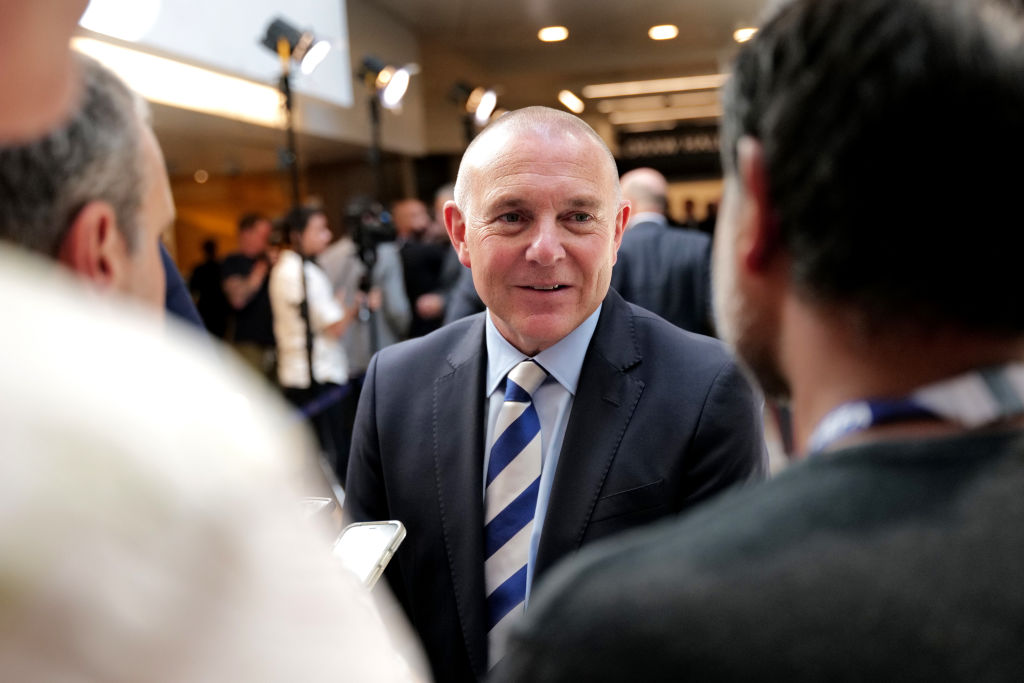
‘But I think Roberto loves Brighton, he loves the club, the people, the infrastructure that we have.
‘And there is this sense that the work he is doing is good for him as well as for us.
‘But that still means at some point in the future he may choose to take that skill base that he has elsewhere – we understand that.’
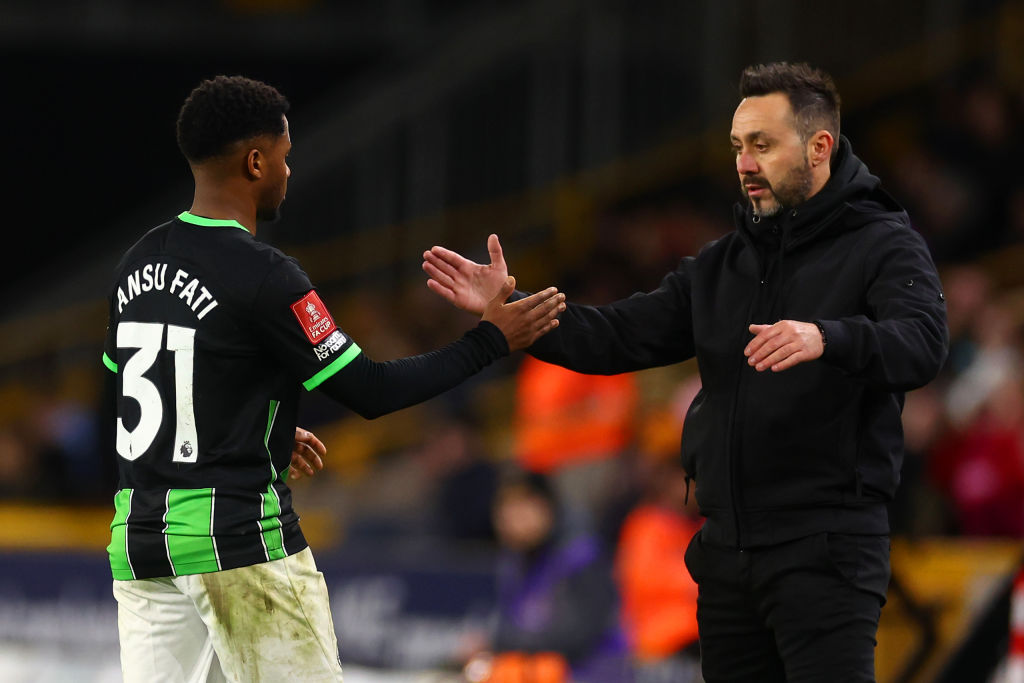
Barber says it’s the first time that he has ever had experienced a manager ‘push expectations publicly’ like De Zerbi has done across his tenure in the Brighton hot seat.
‘It is the most unusual experience I’ve had in my career,’ he added.
‘A lot of time the chairman or chief executive will be speaking publicly to give their coach some air cover, setting expectations at a reasonable level in the hope they are exceeded. Roberto is the opposite.
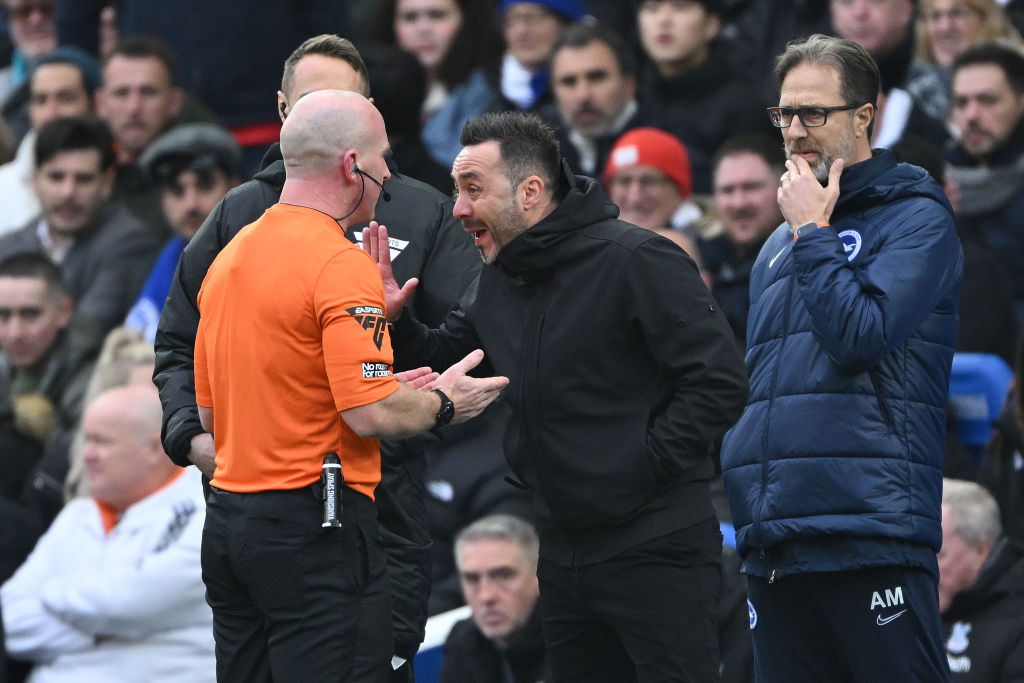
‘He comes to me and says, “Why are you talking about top ten, why don’t you talk about top six?”.
‘It’s the first time in my club career where I am almost encouraged by the head coach to push expectations publicly.
‘He believes that will drive the players, the staff, all of us to be even better.’
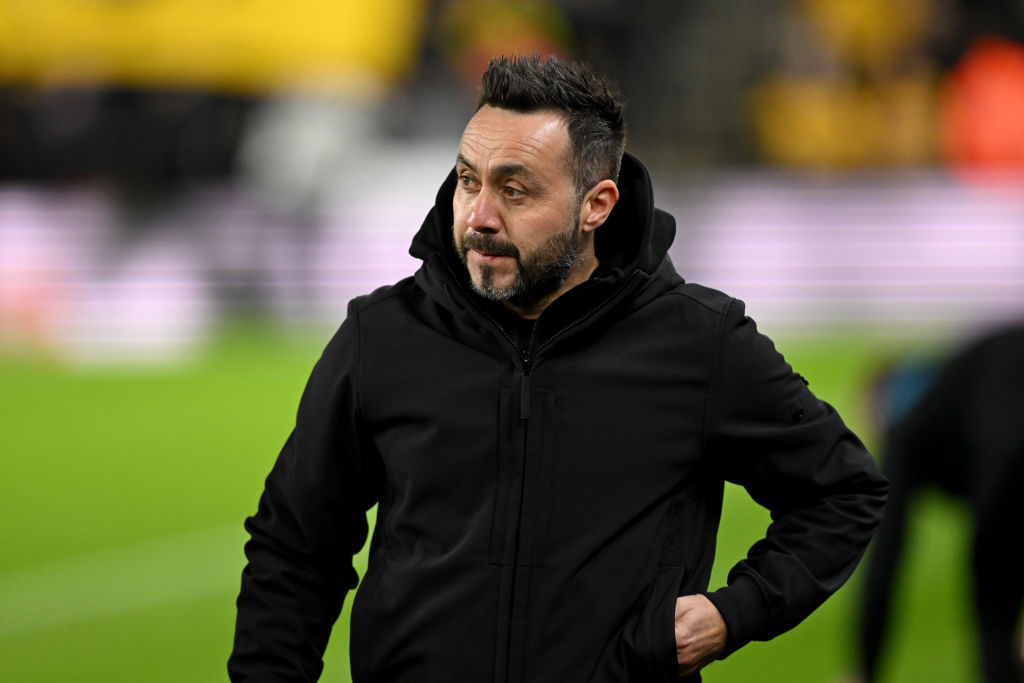
According to Barber, De Zerbi has taken Brighton to ‘another level’ since replacing Potter but the club have a plan in place for when a rival club successfully prise the Italian away from the south coast.
‘Roberto is doing a fantastic job,’ he went on.
‘The evolution from the work Graham [Potter] did, which was outstanding, on top of the work Chris [Hughton] did, which was outstanding, has taken us to another level.
‘With that comes more risk, on and off the field. The risk on the field is obvious. We have a very open, attacking style of play and occasionally that will be unpicked.
‘Off the field, because what he is doing is so attractive, so high profile, so talked about, it then creates risk for us in a different way in that Roberto becomes very desirable.
‘But we are aware of that and I have said for years now, the better we do, the higher profile our people become on and off the field, and ironically the more vulnerable we become to losing them.
‘But we know that and we are not stupid. We understand it, but we are confident in our ability to keep people. The contracts are good, the mechanisms to secure the contracts are good.
‘If people are poached they don’t go quickly, or cheaply in some cases, and we always look to a plan that we have in place for that eventuality.’
, . , and .
Chelsea news, exclusives and analysis




















